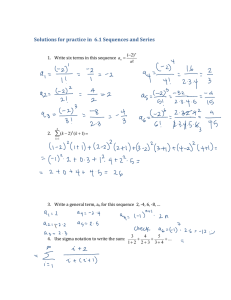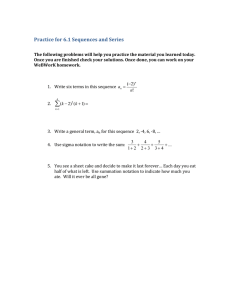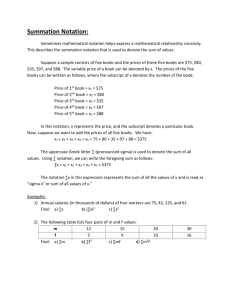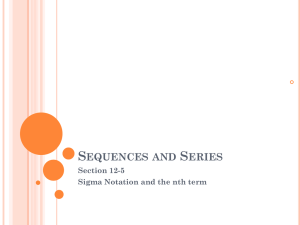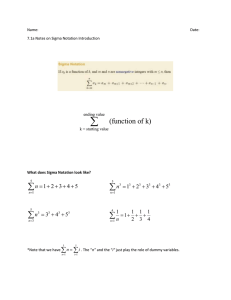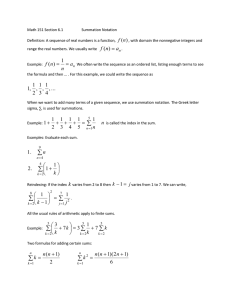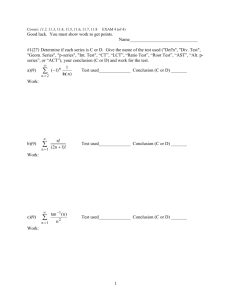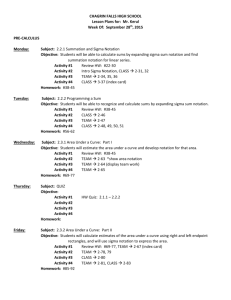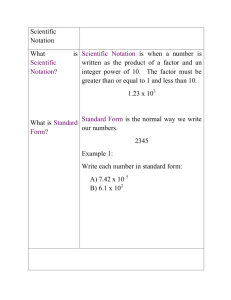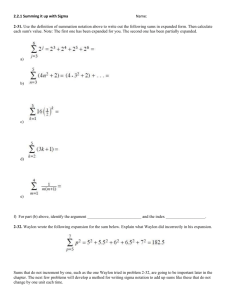Summation Notation (Sigma) Explained with Examples
advertisement
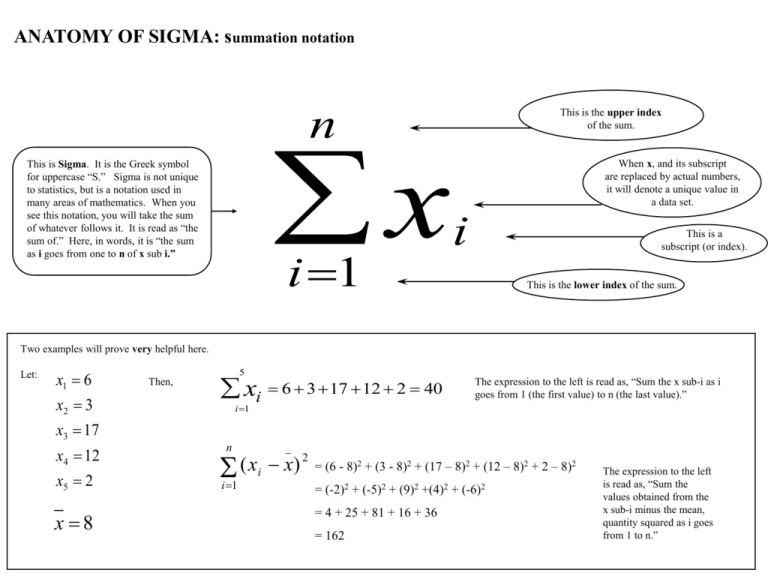
ANATOMY OF SIGMA: summation notation n x This is Sigma. It is the Greek symbol for uppercase “S.” Sigma is not unique to statistics, but is a notation used in many areas of mathematics. When you see this notation, you will take the sum of whatever follows it. It is read as “the sum of.” Here, in words, it is “the sum as i goes from one to n of x sub i.” i 1 This is the upper index of the sum. When x, and its subscript are replaced by actual numbers, it will denote a unique value in a data set. i This is a subscript (or index). This is the lower index of the sum. Two examples will prove very helpful here. Let: x1 6 x2 3 5 Then, xi 6 3 17 12 2 40 The expression to the left is read as, “Sum the x sub-i as i goes from 1 (the first value) to n (the last value).” i 1 x3 17 x4 12 x5 2 x 8 n (x i 1 _ i x) 2 = (6 - 8)2 + (3 - 8)2 + (17 – 8)2 + (12 – 8)2 + 2 – 8)2 = (-2)2 + (-5)2 + (9)2 +(4)2 = 4 + 25 + 81 + 16 + 36 = 162 + (-6)2 The expression to the left is read as, “Sum the values obtained from the x sub-i minus the mean, quantity squared as i goes from 1 to n.”
